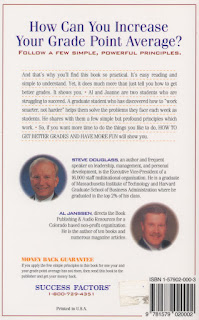 The Journey:
The Journey:A Spiritual Roadmap for Modern Pilgrims
Peter Kreeft
IVP Press
ISBN 0830816828
This is a great little book. It is enjoyable, imaginative and delightful. It is an allegory in the style of Pilgrim’s Progress by John Bunyan or Pilgrim’s Regress by C.S. Lewis. It follows Peter Kreeft and Socrates on a journey out of the Cave and into conscious decision-making. They are in search of true knowledge and knowledge of truth - if we can know truth. Kreeft is a professor of philosophy at Boston College, a popular lecturer and author, and this is one of his best books.
This book is written around 10 dialogues with 12 historical figures: Epicurus, Protagoras, Diogenes, Gorgia, Democritus, Thrasymachus, Xenophanes, Pharmenides, Aristotle, Moses, Joshua and C.S. Lewis. Each of these men represent a school of thought, or a philosophy that has resurfaced again and again throughout history.
Through those 10 dialogues each answer a different question and each question leads to others. They are:
- Shall I question? Shall I go on this quest for truth at all?
- If I question, is there hope of answers, or should I be a skeptic? Is there objective truth?
- If there is any objective truth, is there objective truth about the meaning of life?
- If there is an objective truth about the meaning of life, is it that life is meaningless, “vanity of vanities”?
- If life has real meaning, is it spiritual and not merely material?
- If it is spiritual, is it moral? Is there a real right and wrong?
- If there is a real right and wrong, a real moral meaning, is it a religious meaning? Is there God?
- If there is a God, is God immanent (pantheism) or transcendent (deism), everywhere or nowhere?
- If God is both immanent and transcendent (theism, creationism), are the Jews (who first taught this idea of creation) his prophets, his mouthpiece to the world?
- If the Jews are God’s prophets, is Jesus the Messiah?
Each one of these choices is momentous and life changing. They will either lead you into relationship with the God of Abraham, Isaac and Jacob, or the rejection thereof. This book puts forward all the popular theories for why not to believe at each step along the way.
This is a great little book either to help you know why you believe what you believe or to lead you into a faith based relationship with God.
Other Kreeft Reviews:
Socrates Meets Jesus
The Sea Within
Handbook of Christian Apologetics
Pocket Handbook of Christian Apologetics
The Journey
The Unaborted Socrates
The Best Things In Life
Between Heaven Hell
Doors in the Walls of the World
Catholic Christianity
…
Contributed to:
Contributed to:
...
Articles That Mention Kreeft:
Opus Dei
Opus Dei Part II
Catholic Catechism Dialogue blog
4 Resources
























